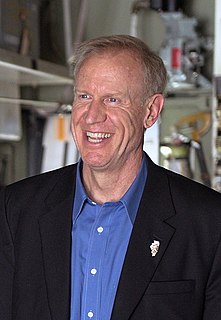A Quote by Aruna Roy
The internal and external ethics of an organization must be the same; you cannot talk about minimum wages for poor people and not pay minimum wages to your own workers.
Related Quotes
Sharp increases in the minimum wage rate are also inflationary. Frequently workers paid more than the minimum gauge their wages relative to it. This is especially true of those workers who are paid by the hour. An increase in the minimum therefore increases their demands for higher wages in order to maintain their place in the structure of wages. And when the increase is as sharp as it is in H.R. 7935, the result is sure to be a fresh surge of inflation.
[E]conomic liberty and creative entrepreneurship are the basis of any solution to today's social and economic difficulties. Blaming business, setting wages, and attempting to run the economy by decree from Washington only exacerbates the problems. Consider the minimum wage. It seems so simple: Tell business to pay its workers more. But a hike in the minimum wage is essentially a tax, punishing precisely those companies that hire workers with the least skills.
To the second end, we hold that minimum wage commissions should be established in the Nation and in each State to inquire into wages paid in various industries and to determine the standard which the public ought to sanction as a minimum; and we believe that, as a present installment of what we hope for in the future, there should be at once established in the Nation and its several States minimum standards for the wages of women, taking the present Massachusetts law as a basis from which to start and on which to improve.
Raising minimum wage doesn't just benefit the workers behind me, it creates a proven ripple effect that increases wages all the way up the scale. ... Let's get the facts straight, only 20 percent of people making the minimum wage are teenagers. The rest are hardworking adults, many of them with families, and I mean hardworking.

































